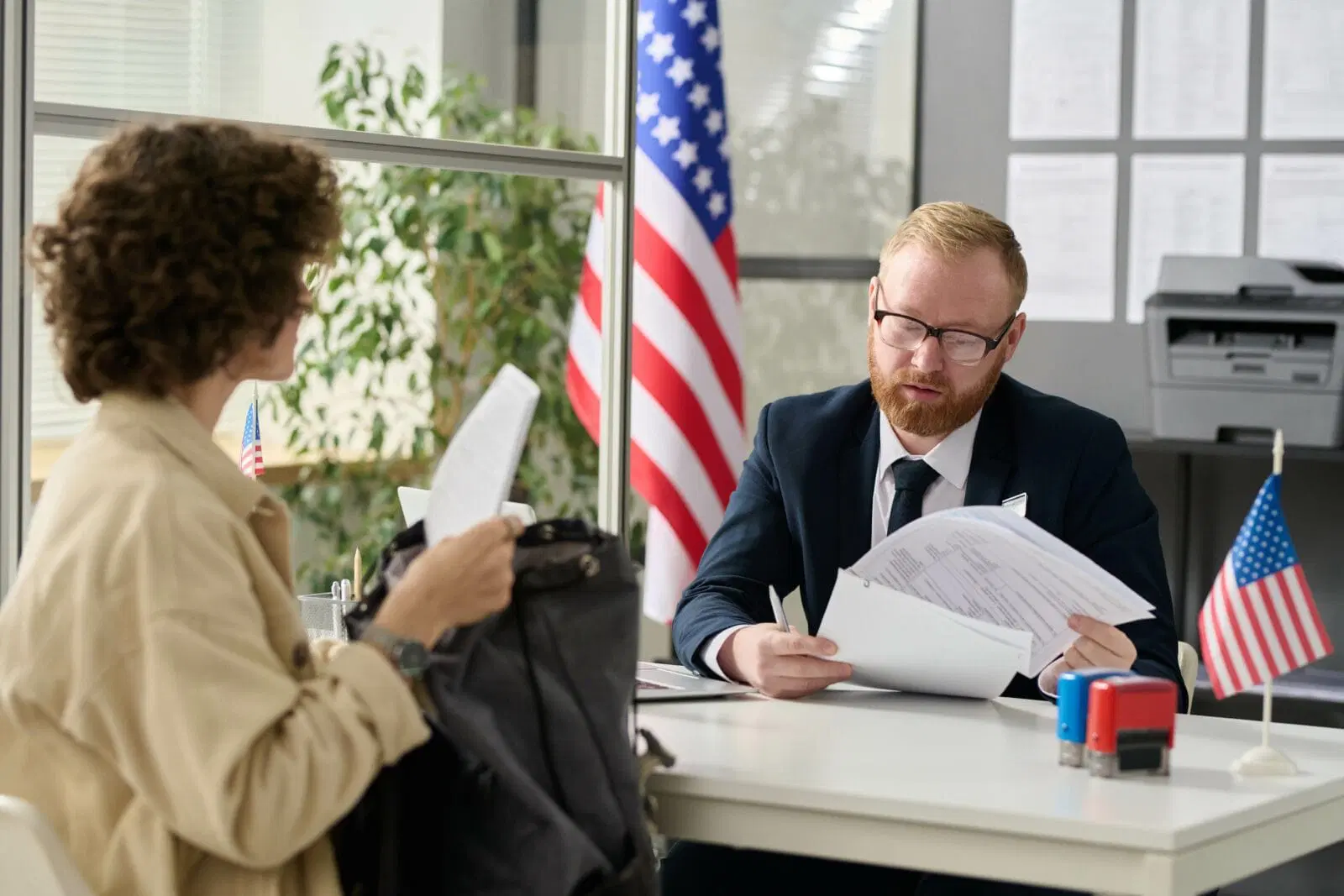The journey towards obtaining U.S. citizenship culminates in the pivotal US citizenship interview, also referred to as the naturalization interview. Administered by the U.S. Citizenship and Immigration Services (USCIS), this interview is a significant milestone wherein applicants showcase their comprehension of U.S. civics, proficiency in the English language, and exhibit good moral character.
Understanding the US Citizenship Interview Process
Conducted at a USCIS office, the US citizenship interview comprises two fundamental segments: the civics test and the English language test. The civics test delves into the applicant’s grasp of U.S. history, government structure, and civic principles. Questions span various facets including the U.S. Constitution, the Bill of Rights, governmental branches, and pivotal historical events. Applicants must answer a designated number of questions accurately from a predetermined pool.
Simultaneously, the English language test evaluates applicants’ capabilities in understanding, speaking, reading, and writing English. It encompasses reading and writing tasks, where applicants must decipher and construct sentences in English, along with a speaking component necessitating responses.
Preparing Adequately for the US Citizenship Interview
Preparation is paramount for success in the US citizenship interview. Essential strategies to bolster readiness include:
- Thoroughly Study U.S. Civics: Diligently review USCIS-provided study materials encompassing a comprehensive list of 100 potential questions and corresponding answers. Understanding underlying concepts supersedes mere rote memorization.
- Enhance English Language Skills: Devote concerted efforts to honing English language proficiencies encompassing reading, writing, speaking, and listening. Acquaintance with vocabulary and phrases germane to the citizenship interview is indispensable.
- Compile Required Documentation: Ensure meticulous preparation by assembling all requisite documents such as the green card, passport, and any supplemental materials stipulated by USCIS. Failure to furnish mandated documentation may impede the naturalization process.
- Exhibit Honesty and Integrity: Uphold utmost honesty and veracity throughout the interview. USCIS rigorously scrutinizes instances of fraud, underscoring the imperative of furnishing accurate information to avert adverse ramifications.
Strategies for a Successful US Citizenship Interview
To optimize prospects of a successful outcome, consider the following tactics:
- Conduct Mock Interviews: Familiarize oneself with potential interview questions through simulated sessions facilitated by a friend, family member, or immigration attorney. Such rehearsals cultivate confidence and refine performance.
- Articulate Responses Clearly: Articulate responses with clarity and confidence during the interview, eschewing colloquialisms or informal language. Deliberate before responding and abstain from conjecture.
- Demonstrate Exemplary Moral Character: Uphold decorum and respect towards the immigration officer, adhering to directives while furnishing truthful and precise responses. Behaviors reflecting integrity and good moral character are pivotal.
- Review Application Thoroughly: Before the interview, meticulously review the naturalization application and accompanying documents, ensuring accuracy and currency. Familiarity with personal and employment history, alongside travel records, is imperative.
- Maintain Composure: Mitigate anxiety by maintaining composure during the interview. Exercise mindfulness, attentively listening to queries, and responding truthfully and confidently. Seek clarification politely if confronted with ambiguity.
- Anticipate Supplementary Testing: In scenarios where applicants falter in the civics or English language tests, anticipate potential supplementary testing in subsequent interviews. Embrace persistence by continuing to prepare diligently for improved outcomes.
Ultimately, diligent preparation, coupled with adherence to ethical standards and composure during the interview, augments prospects of realizing the cherished goal of U.S. citizenship.

